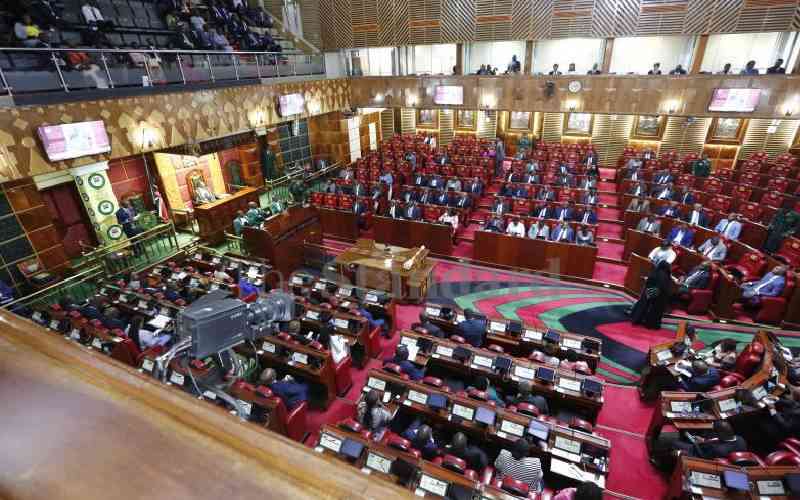Kenya: The 11th Parliament resumes business tomorrow on the back of a significant ruling by the High Court on salaries of Members of the National Assembly and Senators. The ruling by the High Court that declared the National Assembly and Remuneration Act unconstitutional also said that MPs and Senators have no business deciding how much they should be paid.
But it is clear from the tone of the Speaker of the National Assembly, Justin Bedan Njoka Muturi, that Parliament is likely to defy the Judiciary. It is likely to do so by amending Article 260 of the Constitution that makes Senators, Members of the National Assembly and Members of the County Assemblies State officers.
This will be done by passing the Constitution of Kenya Amendment Bill 2013. It is yet another example of how the 11th Parliament is intent on pushing the boundaries in terms of its legislative mandate, to pass self serving laws that are in complete conflict with the Constitution. The Bill has overwhelming support in both Houses of Parliament and so Jubilee will not need to rely on its so-called “tyranny of numbers” to force it through.
Although the drafters of the Bill maintain it is meant to protect the separation of powers and the independence of Parliament, the truth is that this is a not-so-clever way of protecting the perks they forced taxpayers to fund through an Act of Parliament that became obsolete with the promulgation of the Constitution of Kenya 2010. It is sad that such selfish legislation as the Constitution of Kenya Amendment Bill will consume much of the National Assembly’s time at the expense of more serious matters.
Among the Bills yet to be debated by MPs is the Access to Information Bill 2012. This Bill seeks, among other things to entrench the principle of freedom of expression enshrined in the Constitution’s Bill of Rights by allowing citizens to access to a raft of information they can currently not access due to unnecessary red tape.
That the Bill has been shelved for so long is not surprising, given its power to totally transform governance by making it more difficult for the Government to conceal certain information not deemed to be a threat to national security. It would also make it easier for members of the Press to demand access to information they need to fill in the gaps in investigative stories that would unearth deep-seated corruption in Government.
This Bill would do more for promoting accountability and transparency, in both the public and private sector, than directives from State House.
Even more important is that it seeks to protect whistle-blowers “who release information of public interest in good faith.” Public offices and State-owned institutions would be required to routinely provide details of their activities to the public.
It is easy to see why the Government would rather this Bill not see the light of day. It is just too revolutionary.
 The Standard Group Plc is a
multi-media organization with investments in media platforms spanning newspaper
print operations, television, radio broadcasting, digital and online services. The
Standard Group is recognized as a leading multi-media house in Kenya with a key
influence in matters of national and international interest.
The Standard Group Plc is a
multi-media organization with investments in media platforms spanning newspaper
print operations, television, radio broadcasting, digital and online services. The
Standard Group is recognized as a leading multi-media house in Kenya with a key
influence in matters of national and international interest.
 The Standard Group Plc is a
multi-media organization with investments in media platforms spanning newspaper
print operations, television, radio broadcasting, digital and online services. The
Standard Group is recognized as a leading multi-media house in Kenya with a key
influence in matters of national and international interest.
The Standard Group Plc is a
multi-media organization with investments in media platforms spanning newspaper
print operations, television, radio broadcasting, digital and online services. The
Standard Group is recognized as a leading multi-media house in Kenya with a key
influence in matters of national and international interest.









